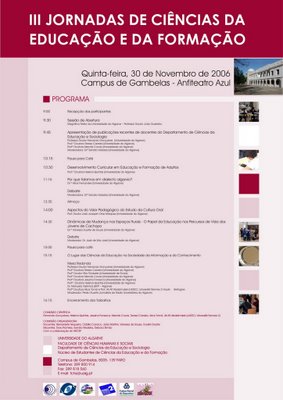Perguntas e respostas - Jeffrey Sachs
 International Herald Tribune
International Herald Tribune Q. Are the existing multilateral and bilateral development institutions efficient in fighting poverty? Which institutions should be reorganized and how? Denitsa Vigenina Germany
A. Having adopted the Millennium Development Goals (MDGs), with specific targets and timetables by the year 2015, the development institutions like the International Monetary Fund and World Bank should be gearing their work around the practical success of achieving these Goals. Unfortunately, these institutions do not yet take the Goals as operational guidelines, and therefore do not put enough emphasis on the practical steps needed to achieve the MDGs. Dozens of countries, notably in Africa, are still off track from meeting the MDGs, but the international agencies (and the rich countries that guide them) have not yet stepped up their practical help sufficiently to get these countries back on track. They are still dramatically under-funding policies as urgent as the control of AIDS, tuberculosis and malaria.
Q. Great powers haven’t fought wars to raise living standards in the world, and the prevalence of some form of corruption in most countries suggests that many people are only thinking of their own advancement. If more aid would help to alleviate poverty and increase human security, why is it so hard to persuade governments that it is worthwhile? And that honest and open government is the best way to tackle poverty?
Anita Inder Singh Sweden
A. This is a great question. Some countries – such as Sweden, Norway, Denmark, the Netherlands, and Luxembourg – have long provided ample levels of aid relative to their national incomes. Those countries have long met or exceeded the international standard of 0.7 percent or more of national income as aid. On the other hand, some countries, such as the United States, have never met the 0.7 percent standard. The United States has invested heavily in the military approach to security (4 percent or more of gross national product spent on the military) but has under-invested in the peaceful approaches to security. The US is stuck in too many wars and conflicts as a result. Foreign policy should be restructured to depend less on military force and more on development aid as a way to promote global stability, well-being and reduced conflict.
Q. What kind of agenda do you think our politicians need if they want to effect the kind of changes you advocate for in poverty elimination and environmental sustainability?
Mitchell Petz United States
A. Our politicians should take seriously the very promises that they have made to their own citizens and to the world. They have promised to stabilize greenhouse gas emissions to mitigate climate change, when they signed the 1992 United Nations Framework Convention on Climate Change. They have promised to protect biodiversity and to reduce the extinction of other species when they signed the 1992 Convention on Biological Diversity. And they promised to reduce drastically the rates of extreme poverty, hunger and disease, when they adopted the Millennium Development Goals in 2000. The agenda is set. The problem is that the Bush Administration and other powerful governments tend to ignore the very promises that they have solemnly taken. Our job as citizens should be to hold all governments accountable for these global goals, which, after all, are vital for human well-being and security.
Q. Do you feel that the UN Millennium Project is sufficiently conflict-sensitive, particularly in the face of comments from the likes of the International Peace Academy which states that “the current focus on the Millennium Development Goals involves implementing a narrowly cast development agenda irrespective of security considerations”?
Patrick Fruchet Switzerland
A. This criticism is unclear and in my opinion off the point. The MDGs set a practical standard for fighting hunger, disease and extreme poverty. They are not “narrowly cast” and are applicable to impoverished regions around the world.
Q. Recently, Sudan-born entrepreneur Mo Ibrahim initiated a prize to instill and boost good governance in Africa. Through venture creation and now via the kind of initiative outlined above, successful entrepreneurship looks like a way, if not the way for growth and development in Africa. Please tell us if this view is viable and feasible in Africa, especially in its sub-Saharan region.
Felicien Dago United Kingdom
A. There are many things needed in Africa, but the escape from extreme poverty is the first and most urgent. That should start with helping impoverished farmers to grow more food (enough to feed their families and to leave a surplus to bring to market), children to go to school, and communities to fight diseases such as AIDS, tuberculosis and malaria. All of these goals can be pursued with proven and low-cost interventions. Entrepreneurship counts, but the first step (as occurred in Asia in the 1960’s and 1970’s) is to fight hunger, disease and the lack of basic infrastructure.
Q. What are your views on the Latin American region, especially Brazil and Argentina? Where do you think that the challenges for growth, poverty eradication and political stabilty should stand?
Alejandro Pitashny Argentina
A. The key next steps in Latin America are to promote a higher standard of education, science and technology. Education should be available for all, so that the extreme inequalities of Latin American society can be narrowed through equal access to education. And with more investments in science and technology, Latin America will become more competitive on world markets, and will thereby raise national incomes and economic well-being. I believe that Latin America is increasingly primed for success in becoming “knowledge-based” economies through improved education and greater technological expertise.
Q. Globalization has impacted India in a positive way but has also led to increasing the gap between the rich and the poor. What are the practical ways to minimize the negative impacts of globalization and tackle this disparity given that the government is largely ineffectual? Kunal Sharma India
A. India is indeed achieving dynamic growth, but especially in urban centers, either those on the coast (such as Mumbai and Chennai) and those with excellence of higher education (such as Bangalore). The rural areas, especially in places with drought-prone and rain-fed agriculture, are lagging behind. The key next steps, in my opinion, are to invest more in India’s rural areas in education, health and infrastructure, so that all parts of India have a chance to share in the rapid overall economic growth. India will also have to pay increased attention to its physical environment, such as the availability of the water supply, so that environmental crises do not impede long-term economic growth. Further efforts should be taken to achieve a quick voluntary reduction in fertility rates, so that India’s population levels off faster than on the current trajectory.







